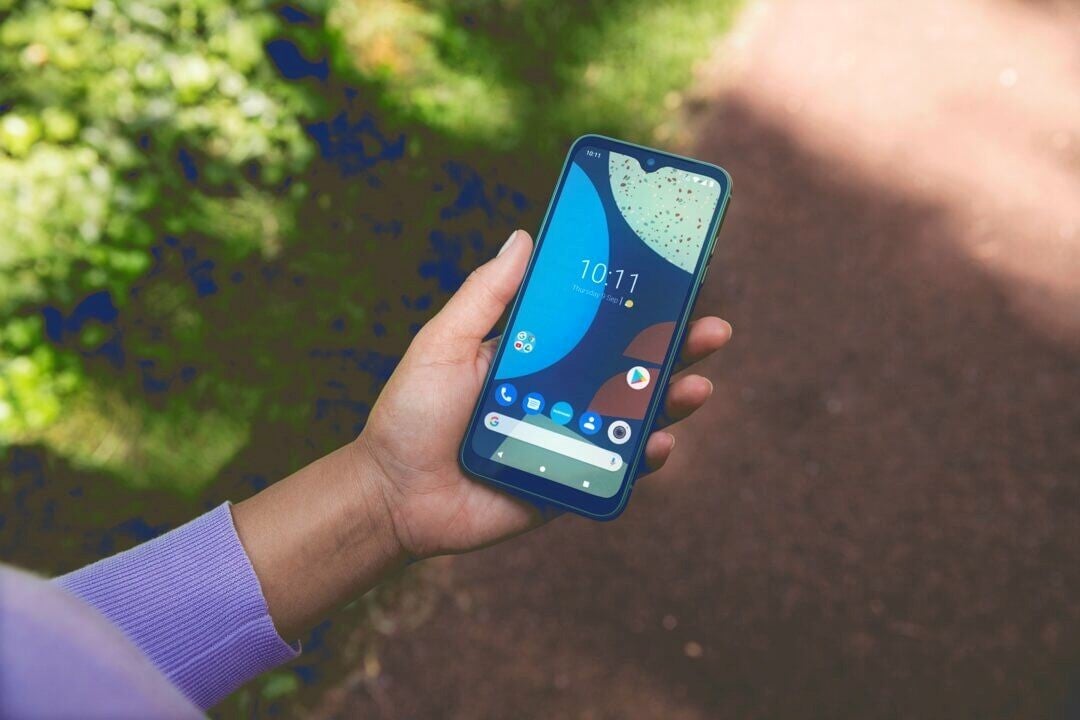
Netherlands’ sustainable brand Fairphone launched its first smartphone, the Murena Fairphone 4, for the US market on 6 July 2023.
Ethical assembly and ease of repair are the phone’s unique selling points. The US launch is a test to gauge consumer interest in a sustainable phone in the third-largest smartphone market in the world.
Privacy, but no Google
The Murena Fairphone 4 comes with a removable 3905 mAh battery, 5G, and dual SIM support. The phone can be easily opened with a standard Phillips #00 screwdriver to replace broken components and is made with recycled and ethically sourced components.
The mid-range phone costs $599 for 6 GB of RAM and 128 GB of storage and $679 for 8 GB of RAM and 256 GB of storage. The phone comes with a five-year warranty, which is unique in the smartphone market. Most OEMs provide only a year of warranty.
The Murena Fairphone 4 claims to be ‘Google-free,’ as it comes with Murena’s /e/OS preinstalled. Privacy-focused consumers who want to avoid giving away their data to Google are the intended audience for this phone. The phone replaces Google’s popular apps like email, calendar, and cloud storage with a bunch of Morena apps – a huge negative for the mainstream consumer.
Fairphone has carved a niche for itself in Europe with its sustainable products and is a profitable company. But unlike Europe, operators drive the smartphone market in the US. Most US consumers buy their smartphones from carriers, which bundle the devices with wireless service plans. The Fairphone 4 comes unlocked, is available only via Murena’s online store, and is compatible with T-Mobile or other operators based on T-Mobile’s network, leaving a large chunk of the market unreachable.
How well do you really know your competitors?
Access the most comprehensive Company Profiles on the market, powered by GlobalData. Save hours of research. Gain competitive edge.

Thank you!
Your download email will arrive shortly
Not ready to buy yet? Download a free sample
We are confident about the unique quality of our Company Profiles. However, we want you to make the most beneficial decision for your business, so we offer a free sample that you can download by submitting the below form
By GlobalDataUpgrade versus repair
Based on reports from Europe, the Fairphone 4 is easy to open apart and repair – a plus point, considering repair bills have passed in three US states already, with 29 others on the ballot.
However, consumers remain unaware of multiple repair options, and self-repair remains a niche segment as of now, especially in the US. In addition, US carriers continue to entice customers with monthly financing for phone upgrades or offer alluring deals like device trade-in offers coupled with heavy discounts on new phones, tilting the balance heavily in favour of upgrades versus repairs.
OEMs like Apple and Samsung have also partnered with iFixit for their own self-repair kits, but their affordability is questionable, and repair measures can be complicated.
Slow progress for Fairphone
Fairphone sold 120,000 devices in 2022. Its growth from around 88,000 phones in 2021 and 23,000 in 2018 is far below individual OEM phone shipments – not to mention worldwide shipments of 1.2 billion units in 2022. Apple alone sold more than 80 million phones in 2022 in the US.
The Fairphone 4 is a niche device in Europe, and even if it finds an audience in the US (and it will), the phone is unlikely to cut into Apple or Samsung’s market share in the immediate future.



Related Company Profiles
Apple Inc